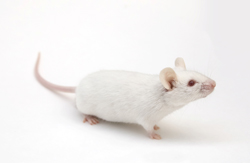Increasing availability of mouse mutant lines
The EU-funded EMMAservice project is now archiving over 1200 such new mouse mutant lines in the European Mouse Mutant Archive (EMMA). A major part of the project is encouraging the transport of frozen germ cells rather than live mice between labs. Furthermore, the team have optimised transporting conditions such that germ cells can be shipped at cold temperature rather than frozen. In addition, they have demonstrated that laser in vitro fertilisation (IVF) with the germ cells is more effective than conventional IVF. The majority of the lines being deposited from around the EU include genetic knock-outs (where certain genes have been disabled) modelling human disease as well as other valuable and demanded research tools. The project has also begun to integrate the data associated with deposited mouse mutant lines with other online resources and databases to make the information available to scientists throughout the European Research Area (ERA). One interesting addition is that researchers can now search for EMMA mouse lines by associated human diseases. EMMA does provide free of charge transnational access to mutant mice for up to 20% of service requests from its European customers. In aspiring to become a world leader, the repository will contribute significantly to biomedical research in terms of mouse model archiving and distribution.







